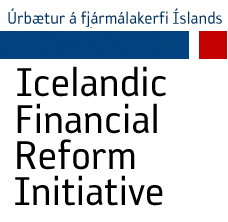President of Iceland advocates economics reform
23.4.2012 | 07:50
The president of Iceland mr. Olafur Ragnar Grimsson has spoken out yet once more against modern mainstream economic theory, at a conference dedicated to the honor of an old friend, economist Žrįinn Eggertsson. The conference bearing the title Economic Behaviour and Institutions Revisited was held at the University of Iceland, where the president said in his speech that...
"...in Manchester we were presented with competing and complimentary views of human behaviour: No single discipline could master the understanding of why and how; homo economicus was simply an analytical tool, and often a misleading one. It was homo sapiens that would, through conflicts and complexities, provide the key to a more profound understanding.
In Dover Street they offered vigorous courses in economics, but we also had to study political science, sociology and anthropology; the old building vibrated with lively debates and interdisciplinary activities.
If you ask me – and mind you, I am the only one here today who witnessed these early formative years – whether the writings of Adam Smith, Malthus or John Maynard Keynes influenced Thrįinn more than the fascinating and entertaining lectures given by Professor Gluckman, an anthropology pioneer, on the Zulu tribe in Southern Africa, I would, if you pressed me, have to cast my vote for the Zulus rather than the founding fathers of modern economics!
It may be an impolite and un-presidential conclusion in this prestigious company of economic scholars, but I firmly believe that when the orthodoxies of recent decades brought economic research and financial policy-making into dire straits, it was the memory of the Zulus that gave Thrįinn the strength to advocate an alternative view and to stick to his guns even though fashion called for another course.
Sitting in Gluckman’s classes, we saw a strong resemblance between the Zulus and the Nordic viking culture and listened with fascination when the learned professor brought Shakespeare into his analysis, highlighting the similarities between the royal courts of British history and the tribal dances on the grasslands.
We realised that wherever we come from, however sophisticated the frameworks of our societies and the advances of our institutions, we all –Nordic Vikings, Zulus, English kings and nobles – belong to the same human family. No discipline should cut the study of economic behaviour free of the dimensions provided by culture, old and new, by the vigorous restrictions of political institutions, by the dramatic, vibrant and ever-changing forces in what we call society.
In recent years, our nations have suffered greatly because of the adoption of a narrow perspective claimed to be the one and only guidebook. Governments and businesses alike turned a blind eye to the school of thought in which Thrįinn has now for decades been among the pioneering leaders, the school which calls on all of us to acknowledge that this is a journey, imperfect and unstable, in a train with many compartments, filled with human beings of all shapes and sizes, a colourful parade packed with people of different cultures and traditions, like an overcrowded Indian train running from Rajasthan to Goa.
It is therefore not only appropriate that we should here today honour a dear friend and a great and wise scholar, but that this gathering should also be a reminder that at the crossroads where we and many others now find ourselves, there is an urgent need to adjust our thinking, our policies and our actions, to the profound dimensions of the teaching that Thrįinn has made his life’s vocation."
Yes, let's adjust our thinking, our policies and our actions to profound dimensions indeed. The president's critique of mainstream economics is far from newfound, in a 1984 televised debate a much younger mr. Grimsson came head to head with one of the prime motivators of modern economic thought, mr. Milton Friedman himself. It seems the presence of such a huge name in his field presented little or no intimidation to the icelandic guest interrogators, so wether you agree with the debate or not then at least it's refreshingly blunt even by today's standards. Ironically, this digitized rebroadcast of the original 1984 show is preceded by an ad from one of the failed banks in Iceland:

|
Forsetinn: Mašurinn er ekki vél |
| Tilkynna um óvišeigandi tengingu viš frétt | |
Meginflokkur: Višskipti og fjįrmįl | Aukaflokkur: Stjórnmįl og samfélag | Breytt s.d. kl. 03:15 | Facebook




Athugasemdir
Kęri herra Gušmundur Įsgeirsson!
Ég sem ekki kann enskt tungumįl, viltu vera svo góšur og stikla į stóru og segja į ķslensku hvaš blogg žitt inniheldur.
Žaš eru til ķslendingar sem ekki fengu langskólamenntun og kunna žar af leišandi ekki erlend tungumįl. Viš erum enn į lķfi.....
Jóhanna (IP-tala skrįš) 23.4.2012 kl. 18:35
Eitthvaš er tölvan aš strķša mér. ekki eitt orš aš marka frį mķnu fyrra kommenti. Verš aš koma lagi į skrapatoliš sem er komiš til įra sinna. Sent meš fyrirvara. kvešja.
Jóhanna (IP-tala skrįš) 23.4.2012 kl. 18:44
Jóhanna, žetta er mestmegnis endurbirting į texta af vefsķšu Forsetaembęttisins žar sem ręšan ķ heild sinni er birt į ensku. Ķ fréttinni sem žetta er bloggaš viš er hinsvegar einmitt stiklaš į stóru um innhald ręšunnar, į hinu įstkęra ylhżra tungumįli voru.
Tilgangur minn meš žvķ aš birta žetta hér er aš geta vķsaš śtlendingum į žetta, śtlendingum sem lesa ekki ķslenskuna ķ fréttinni en gętu haft įhuga į žvķ aš vita hvaša afstöšu forseti Ķslands hefur til umbóta į sviši hagfręšinnar.
Gušmundur Įsgeirsson, 23.4.2012 kl. 21:09
Bęta viš athugasemd [Innskrįning]
Ekki er lengur hęgt aš skrifa athugasemdir viš fęrsluna, žar sem tķmamörk į athugasemdir eru lišin.